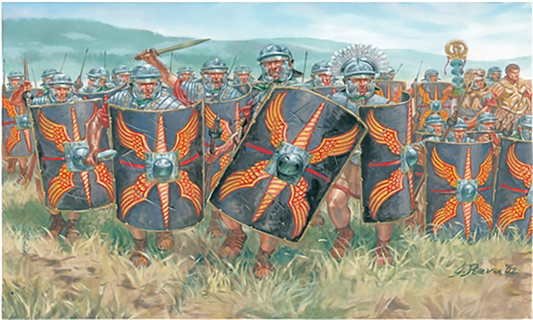ROMAN INFANTRY (CESAR'S WARS)
Description
The equipment of the 1st Century B.C. legionnaire became the stereotype of Roman infantry. Over his tunic he wore the heavy lorica segmentata, the most advanced form of body armor at the time. The characteristic rectangular “scutum” often bears the name or the insignia of the Legion the soldier belongs to. The individual armament comprised gladius and pilum, a heavy throwing javelin. The kit also includes centurions with transverse crest helmets, and the signifer (standard bearers) carrying the Legion's insignia.
ROMAN INFANTRY (CESAR'S WARS)
Description
The equipment of the 1st Century B.C. legionnaire became the stereotype of Roman infantry. Over his tunic he wore the heavy lorica segmentata, the most advanced form of body armor at the time. The characteristic rectangular “scutum” often bears the name or the insignia of the Legion the soldier belongs to. The individual armament comprised gladius and pilum, a heavy throwing javelin. The kit also includes centurions with transverse crest helmets, and the signifer (standard bearers) carrying the Legion's insignia.

